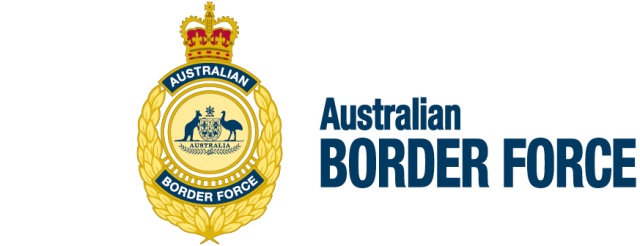
 ABF Podcast Series
ABF Podcast Series
A monthly podcast series featuring different elements of Australian Border Force will be
developed. The series will invite engagement with ABF by the Australian public and related
government agencies, promote ABF’s border security arrangements and position ABF as a
policy champion. The podcast series wil be developed in-house and distributed via a
number of suitable
podcast directories and the Border.gov.au website. The series could be
promoted through LinkedIn, Twitter and Facebook engagement, Border Bulletin, and the
revised DIBP intranet.
Five reasons to podcast
#1: Professional Development
From Walkmans to iPods to smartphones, portable music has revolutionised the world, but
in today’s society people are looking to take more than music with them–they’re looking
for ways to learn more. Podcasts provide opportunities to learn without taking extra time in
their day.
#2: Trust
Websites and blogs are a great way to give valuable information to your audience, but by
delivering the same content through a podcast, you’re able to use your voice to bring your
content to life. You have the ability to connect with your audience on a more personal
level.
#3: Mobility
According to
Eddison Research, nearly two-thirds of podcast consumers do most of their
podcast listening on mobile devices. With a website or blog, you are asking an audience to
sit down and give you 10 – 15 minutes of their time to read your posts. By turning that
same material into a podcast, you’ve opened up your audience from people sitting down at
their desk to people in the car, jogging, and working.
#4: Networking
With podcasts, you are paving the way to connecting to other professionals and opening
the door to future conversations.
#5: Reach
With podcasts, you can reach people anywhere the world.
FAQ -
What is a podcast?
1

Some people confuse a simple audio file with a podcast. A podcast is an audio file that is
automatically ‘delivered’ to a subscriber. It is similar to subscribing to a newspaper: the
paper is delivered to you, rather than you going to the shop to get it.
Although the name was initial y a combination of iPod (the hand-held digital music player
made by Apple) and broadcast, podcasts can now be played on any computer, including
smart phones and tablets.
Podcasting is known as ‘push’ technology, because once subscribed to an RSS feed, the
content is ‘pushed’ to the user. For example, any new podcast from Emergency
Management Australia (EMA) is automatically offered once the user subscribes to an initial
EMA podcast. The file can be played on a computer or smart device or copied to an iPod or
other digital audio player.
This is different to ‘pull’ technology, which requires the user to manual y stream or
download a file. Most podcast producers will, along with their RSS feed, have their program
available to be played or downloaded directly from a webpage. In this format, they are not
true podcasts, because the user manually retrieves the file.
Podcasting is a really exciting medium for the ABF. It will allow us to tel the real story of
our work in new and interesting ways.
ABF podcasting protocols and guidelines
• Podcast interviews must not be “spin”. They have to be balanced, newsy and
interesting.
• They must be presented professional y and presented by someone with a good
voice who speaks clearly and sounds interesting (radio broadcaster or television
journalist experience preferred). They must feature clear, plain, interesting
language.
• They must invite a two-way conversation around those stories on the full range of
social media platforms.
• ABF podcasts should be about border security/law enforcement, and to maintain
credibility in the format, it is essential to stick to talking about it in an accessible
manner.
• The stories should not just be about the organisation’s successes, but also about its
chal enges and struggles.
Producing an audio file
Equipment:
One of the attractions of podcasting is that it is much easier than conventional
broadcasting. Anyone with a microphone, computer, recording device and an editing
programme can podcast. Whether they put together a listenable podcast or not is another
matter.
Recording:
There are several very good recording devices, including smartphones, which will allow you
to record interviews in the field.
 Software:
Software:
DIBP Production and Design retain suitable audio editing software for the manufacture of
podcasts.
The end product should be produced in the MP3 format, and include descriptive
ID3 tags
such as episode number, track name and cover art.
What makes a podcast listenable? Ever listened to a radio programme and started drifting off, thinking about what you’re
going to have for dinner? It’s because it’s boring. Here’s how to avoid boring your audience
to death.
Don’t fal into the “worthy but dull” trap. Don’t think “wel the audience SHOULD listen to
this”. Avoid the “should” factor. The audience must WANT to listen. It’s our responsibility
to make it interesting.
What’s boring?
o Long repetitive answers.
o Answers that start with “wel it’s a three part answer really”
o Dull subjects which just don’t interest the audience.
Before you put together a podcast interview, be ruthless about it. Ask yourself “why this
story, and what makes it relevant now?” In other words, is it newsworthy? It needs to have
a hook, an angle.
Keep your audience in mind at al times
It’s a common mistake made by even the huge conglomerates to put together a podcast
revolving around the company. Our podcast interviews should be aimed squarely at the
audience.
Make your story understandable
An experienced radio journalist will tell you that stories are much easier to tel if people can
relate to them. So for example, you can do a very worthy story about counterfeit goods,
but people may start turning off if it’s too dull. It’s best to relate the issue to people’s lives,
for example do a story on “how counterfeit goods can be harmful”, because people want to
know how counterfeit goods wil affect their lives.
Podcast quality is important
It is essential that every podcast produced by the ABF is a quality product. Listeners expect
a certain level of professionalism, and we must live up to this.
So how do you define “quality”? For a start, every podcast should be easy to listen too. The
audio levels should be acceptable. Audio levels mean the recording level. If you record
someone at too low a level, it can be very hard to hear the interviewee. And if the level is
too high, the audio wil be distorted and sound terrible.
Too many cadet journalists make the mistake of saying “it’ll be right, no one wil notice” but
listeners DO notice, and bad levels are the obvious sign of an amateur. Bad levels and poor
audio mean that your audience wil assume you don’t know what you’re doing and they
won’t come back.
How long should an interview be?

Three to five minutes is optimal.
Why can’t we just record an SES speech at a lecture series and put it up as a podcast?
No offence to the SES, but a 40 minute speech from a lectern can be very dull in a podcast
format. There are several reasons for this. The speech was “designed” and written for the
audience in the lecture room. It was probably accompanied by PowerPoint slides. The audio
is likely to be “flat” in a podcast format. It would be much better to interview the SES after
they step down from the lectern.
How long should the podcast be?
The ABF podcast wil cover the news and issues relating to border security and the
organisation, so should be long enough to serve its purpose, but not so long that we bore
or lose listeners. In general, a 20-30 minute show is a good length. ABF podcast listeners
might listen to a lot of podcasts. If you want the ABF podcast to be one that they listen to
regularly, then we don’t want to take up more of their time than we need to.
Proposed segment structure:
1. Intro Theme Song
2. Welcome
3. Announcements
4. First Interview
5. Second Interview
6. Third Interview
8. Final Comments
9. Outro Music
What should the ABF podcast be about? The podcast must be about the ABF and our mission. No matter what the format, the
presenter, the style, the common denominator must be border security. It is essential that
the podcasts aren’t propaganda tools or a personal vehicle or management vehicle.
Podcasts aren’t a way to “spin” our message, they are a window into the ABF, and should
be treated with respect.
Language
Use normal words. Anything that is too technical or too “management speak” just won’t
work.
Don’t write too formally. Avoid any talk of “stakeholders” and “synergies”! It is essential
that the language used in podcasting is simple and straightforward. A script that is written
(and approved) by committees always sounds that way.
Bottom line is: don’t create a podcast interview by committee. There’s nothing worse than
a podcast interview that has clearly been edited within an inch of its life. If you find various
stakeholders are trying to dissect a podcast story, it’s best not to go ahead.
It is best not to rehearse or give the interviewee the questions before hand; your interview
will sound too strained and formal. Give your interviewee a general sense of what you want
to discuss, do the interview and see what happens.
Target audiences
• DIBP

• Australian community
• Educational institutions and academia
• Local governments
• Media
• Ministers
• Non-government organisations
• Other Australian government agencies
• Private sector organisations
• International governments
• State and Territory governments
• Technical experts and practitioners
ABF Podcast series costs
Podcast hosting
Approx. $12 a month for
business account–unlimited
storage and bandwidth, stats.
Digital Recorder
Smartphone (no cost)
Podcasting editing Software
Freeware (no cost)
Audio Royalties
Royalty free music (no cost)
Total cost of podcast production: $12.00 per episode
How long does it take to create a wel -produced podcast?
The ABF podcast wil be a quality product and require a degree of dedicated resourcing. To
be successful, it is essential we have access to appropriately skilled staff capable of:
• Script writing
• Narrating
• Researching
• Identifying talent
• Interviewing
• Editing
• Post production
• Clearances
• Uploading
• Social media promotion
Once we commit, it’s vital to have a regular schedule for the posting of new podcasts to
maintain listener loyalty. They wil know when to expect from us and look forward to our
new shows.
Other noteworthy Australian Government podcasts include:
• Emergency Management Australia (AGD)
• Australian Bureau of Statistics
• Department of Communications and the Arts
 Summary
Summary
Podcasts are finally positioned to achieve mainstream penetration, mostly because of
mobile phone adoption and technologies that have lowered the barrier to entry. Podcasting
offers a level of engagement with audiences that is incomparable with other digital media;
it thus presents a remarkable opportunity for the ABF to cultivate and build strong
audience relationships.
Document Outline






